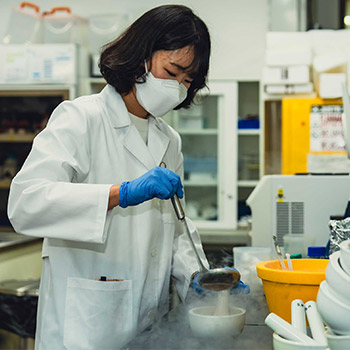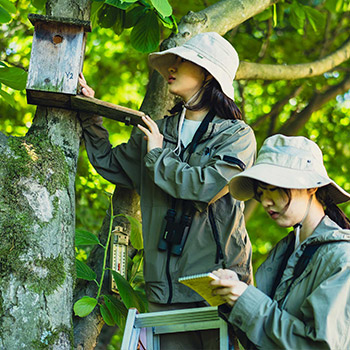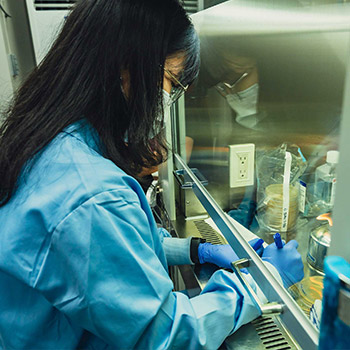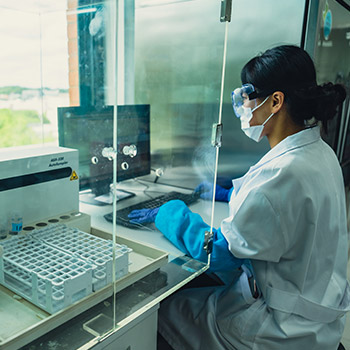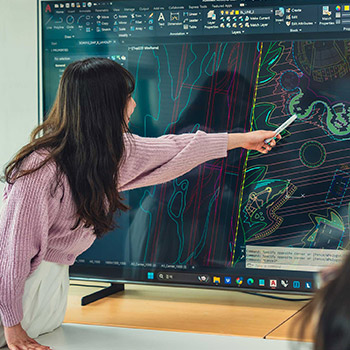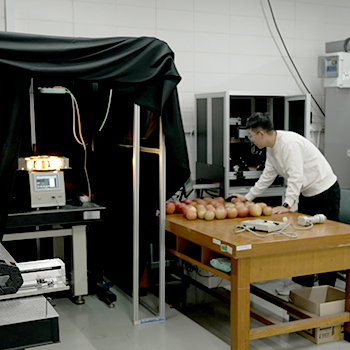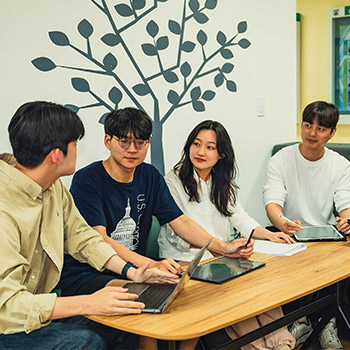Department of Agricultural Biotechnology
☎ +82-2-880-4901
200-6107
Agricultural biotechnology is a cutting-edge science incorporating biotechnology and agricultural science. Genetic engineering, cell and tissue culture technologies of biotechnology are combined with the technologies of agricultural sciences.
Agricultural biotechnology has assumed a critical role of securing food resources both in quantity and in quality utilizing flora and fauna biological resources, developing advanced biomaterials, treating plant and animal disease, and preserving the global environment.
The Department of Agricultural Biotechnology conducts research on biological resources, animals, plants, microbes to meet the needs of humanity by solving food issues, environmental problems and diseases collaboration with the knowledge of biotechnology, strategic industry. The program carries out research on high value-added biomaterials and fostering future leaders in this academic field.
The Department of Agricultural Biotechnology encompasses six programs: Program in Food Science and Biotechnology; Program in Animal Science and Biotechnology; Program in Applied Life Chemistry; Program in Plant Microbiology; Program in Entomology; and Program in Biomodulation. The Department supports professors and graduate students' research activities with the Brain Korea 21 Projects implemented by the Ministry of Education, Science and Technology.
Agricultural biotechnology has assumed a critical role of securing food resources both in quantity and in quality utilizing flora and fauna biological resources, developing advanced biomaterials, treating plant and animal disease, and preserving the global environment.
The Department of Agricultural Biotechnology conducts research on biological resources, animals, plants, microbes to meet the needs of humanity by solving food issues, environmental problems and diseases collaboration with the knowledge of biotechnology, strategic industry. The program carries out research on high value-added biomaterials and fostering future leaders in this academic field.
The Department of Agricultural Biotechnology encompasses six programs: Program in Food Science and Biotechnology; Program in Animal Science and Biotechnology; Program in Applied Life Chemistry; Program in Plant Microbiology; Program in Entomology; and Program in Biomodulation. The Department supports professors and graduate students' research activities with the Brain Korea 21 Projects implemented by the Ministry of Education, Science and Technology.

Programs
Program in Entomology
The Applied Biology Program of CALS provides students with high quality education and research opportunities in both applied and basic areas, primarily related to agriculturally-important organisms and their management in order to promote the stability of agricultural production.
The undergraduate programs, including entomology and plant microbiology, have recently put more emphasis on the application of cutting-edge sciences and technologies, such as molecular biology, genetics, and biotechnology, in order to establish a new paradigm of sustainable agriculture and environment as well as to address practical aspects of plant disease and pest management.
The program in plant microbiology offers courses on the basic and applied aspects of fungi, bacteria, viruses, and nematodes as plant pathogens, the development mechanisms of plant disease, disease epidemiology, mycotoxicology, and environmentally important soil microorganisms. In the entomology program, education and research are offered in the areas of insect systematics, ecology and population dynamics, insect physiology, insect molecular biology and biotechnology, and bioactive natural products.
The undergraduate programs, including entomology and plant microbiology, have recently put more emphasis on the application of cutting-edge sciences and technologies, such as molecular biology, genetics, and biotechnology, in order to establish a new paradigm of sustainable agriculture and environment as well as to address practical aspects of plant disease and pest management.
The program in plant microbiology offers courses on the basic and applied aspects of fungi, bacteria, viruses, and nematodes as plant pathogens, the development mechanisms of plant disease, disease epidemiology, mycotoxicology, and environmentally important soil microorganisms. In the entomology program, education and research are offered in the areas of insect systematics, ecology and population dynamics, insect physiology, insect molecular biology and biotechnology, and bioactive natural products.

Faculty
| Name | Major | TEL | |
|---|---|---|---|
| Professor Lee, Kwang Pum |
Insect Physiology | +82-2-880-4693 | kwanglee@snu.ac.kr |
| Professor Lee, Seunghwan |
Insect Systematics | +82-2-880-4703 | seung@snu.ac.kr |
| Professor Lee, Sihyeock |
Insect molecular biology | +82-2-880-4704 | shlee22@snu.ac.kr |
| Professor Je, Yeon Ho |
Insect Microbiology & Biotechnology | +82-2- 880-4706 | btrus@snu.ac.kr |
| Associate Professor Jun-Hyung Tak |
Insect Pest Chemical Control | +82-2-880-4702 | jhtak@snu.ac.kr |
| Associate Professor Changku Kang |
Insect Ecology | +82-2-880-4705 | changkukang@snu.ac.kr |

